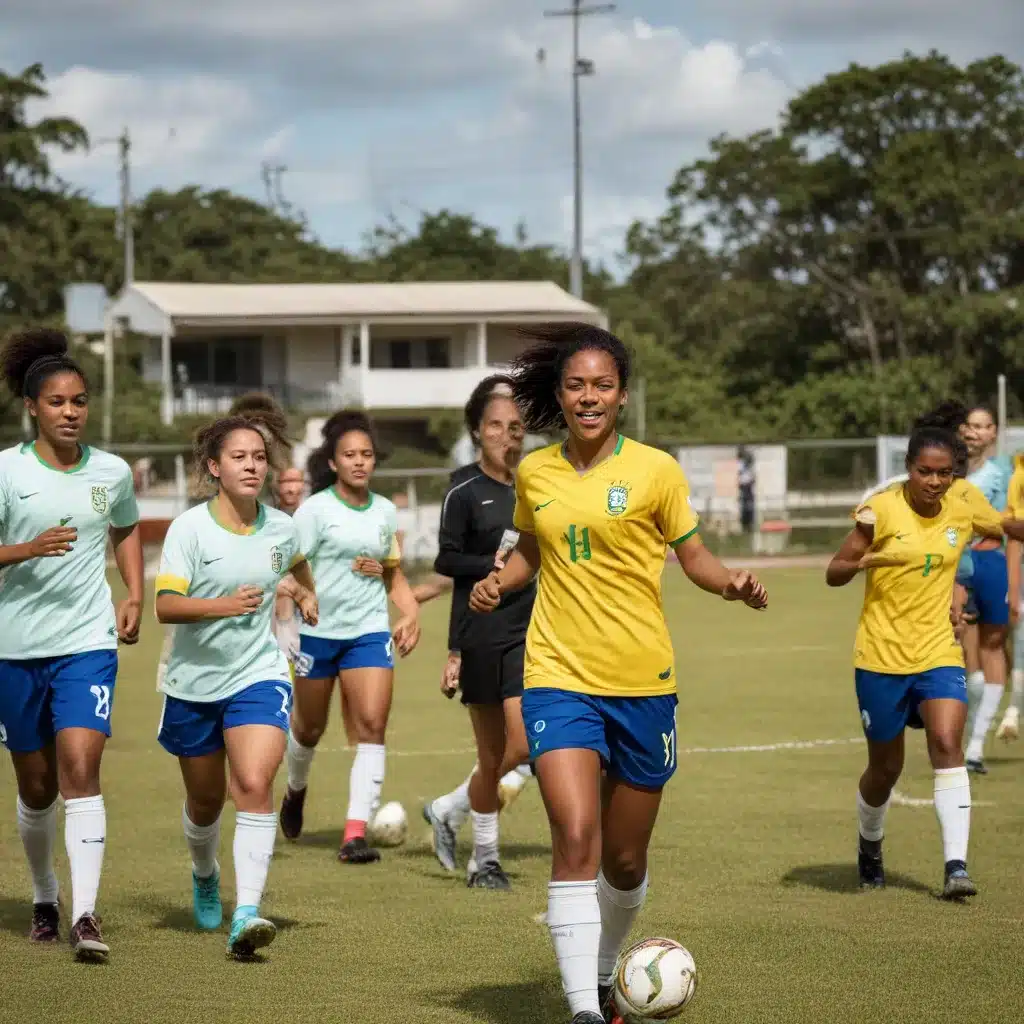
History of Brazilian Women’s Football
The story of women’s football in Brazil is one of grassroots passion, determined pioneers, and a relentless fight for recognition. While the men’s game has long dominated the national consciousness, the women’s game has quietly been carving its own path, overcoming immense societal and institutional obstacles to emerge as a force to be reckoned with.
In the early 20th century, the first sparks of the women’s game in Brazil began to flicker. Defying societal norms that deemed football an unsuitable pursuit for women, trailblazers like Carlota Reis and Miriam Souza Bastos formed the country’s first all-female teams, playing exhibition matches that captured the public’s imagination. These early pioneers faced intense criticism and resistance, but their unwavering dedication paved the way for the growth of the sport.
Throughout the 1940s and 1950s, grassroots movements took hold, with women’s football clubs sprouting up across the country. Teams like Radar Esporte Clube and Juventude Esporte Clube in São Paulo became hubs for passionate players, coaches, and administrators who refused to let the dream of women’s football die. These trailblazers organized their own tournaments, forged their own paths, and nurtured the next generation of talent.
Challenges and Obstacles
Yet, the journey was far from easy. Societal perceptions of women in sport remained a significant hurdle, with many viewing football as an inherently masculine pursuit. The Brazilian government even went so far as to ban women from playing the sport in 1941, a decree that would remain in place for nearly four decades. This institutional discrimination stifled the growth of the women’s game, forcing players and coaches to operate in the shadows, fighting for every scrap of recognition and support.
The lack of infrastructure and funding further compounded the challenges. While the men’s game enjoyed the backing of powerful clubs, lucrative sponsorships, and a well-developed league system, the women’s game languished in the margins. Coaches often worked tirelessly on a volunteer basis, and players struggled to access proper training facilities, equipment, and medical support.
Grassroots Initiatives
But the spirit of the game remained unbroken. Across the country, passionate individuals and community-based programs stepped up to fill the void, driven by a deep love for the sport and a determination to create opportunities for women and girls.
In the favelas of Rio de Janeiro, organisations like BOLA (Bem Olhar e Ler Ativa) and Estrela Futebol Clube used football as a tool for social change, empowering young women through skills development, mentorship, and the creation of safe spaces to play. These grassroots initiatives not only nurtured football talent but also fostered a sense of community, resilience, and self-belief.
Volunteer coaches, many of them former players themselves, became the unsung heroes of the women’s game. They dedicated countless hours to training, mentoring, and advocating for their teams, often without financial compensation. These passionate individuals recognised the transformative power of the sport and poured their hearts into developing the next generation of footballers.
Unsung Heroes
One such unsung hero is Aline Pellegrino, a former Brazil international who has dedicated her post-playing career to coaching and administration. Aline has been a driving force behind the growth of women’s football in São Paulo, founding the Associação Paulista de Futebol Feminino (APFF) to provide a platform for grassroots teams and leagues. Her tireless efforts have not only created opportunities for players but also challenged societal perceptions and pushed for greater investment in the women’s game.
Another inspiring figure is Marta, the legendary Brazilian forward who has become a global icon of the sport. While her exploits on the pitch have earned her widespread acclaim, Marta’s off-field advocacy has been equally impactful. She has used her platform to champion the cause of women’s football, speaking out against inequality and calling for greater support and resources.
Impact and Influence
The passion and determination of these grassroots heroes have had a profound impact, inspiring the next generation of players, coaches, and administrators. Young girls across Brazil are now dreaming of following in the footsteps of their role models, fueled by the belief that they too can achieve greatness on the pitch.
Beyond the borders of Brazil, the country’s women’s national team has become a symbol of excellence, captivating audiences worldwide with their flair, skill, and unwavering spirit. The Seleção Feminina, led by the likes of Marta, Formiga, and Andressa Alves, has consistently punched above its weight, reaching the final of the FIFA Women’s World Cup in 2007 and winning Olympic bronze medals in 2004 and 2008.
The Road Ahead
As the women’s game continues to evolve, the need for sustained investment, institutional support, and policy changes has become increasingly evident. Grassroots initiatives have laid the foundation, but the next phase requires a concerted effort to address the systemic barriers that have long hindered the growth of the sport.
Advocates are calling for greater funding, improved infrastructure, and the development of robust league systems that can provide professional opportunities for female players. Simultaneously, there is a push for the transformation of societal attitudes, challenging the deep-rooted gender stereotypes that have hampered the progress of women’s football.
The journey has been arduous, but the spirit of the game remains unbroken. The unsung heroes of Brazilian women’s football – the passionate coaches, the tireless administrators, the inspiring players – have paved the way for a brighter future. As the world turns its gaze to the next generation of Brazilian footballing talent, it is these grassroots champions who will continue to shape the narrative, redefining the boundaries of what is possible and inspiring the next wave of trailblazers.

